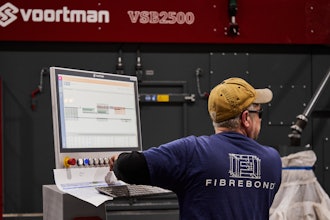KUALA LUMPUR, Malaysia (AP) -- A free trade pact being negotiated by the U.S. and 11 Asia-Pacific nations will impose aggressive intellectual property rules that will restrict access to affordable medicines in developing nations, health activists warned Wednesday.
The 12 countries will start an 18th round of talks in Malaysia on July 15 and hope to complete negotiations by October. Japan will join the Trans Pacific Partnership talks for the first time, alongside the United States, Australia, New Zealand, Canada, Brunei, Malaysia, Singapore, Vietnam, Peru, Chile and Mexico.
Fifa Rahman, from the Malaysian AIDS Council, said talks have been held in secret but leaked drafts of the agreement showed that Washington has proposed a tough intellectual property regime that will enhance patent and data protections for pharmaceutical companies and obstruct competition for cheaper generic versions of drugs.
This could further restrict access to affordable, life-saving medicines for millions of people, she said on the sidelines of an international AIDS conference.
"The TPP will be the icing on the cake for big pharmaceuticals. It will create a thicket of barriers around generic medicines and this will have a chilling effect on access to affordable medicines for many developing countries," said Leena Menghaney, from Doctors Without Borders.
Menghaney said the pact, billed as a model for future trade agreements worldwide, could set damaging precedents with serious implications for developing countries.
Provisions in the agreement will facilitate the practice of "evergreening," where pharmaceutical firms limit access to generic medicines by using various tactics to extend monopoly protection on drugs beyond the initial patent period, she said. She said companies would be able to seek multiple secondary patents on a single drug so that even when the original patent expires, the product is protected for years after.
Drug companies say that strong intellectual property protections are needed to foster investment in research to develop new and better drugs.
Once a drug's patent expires, generic manufacturers can legally produce it. They are able to make drugs at a fraction of the original manufacturer's cost because they don't carry out the expensive research and development.
Fauwaz Abdul Aziz of the Third World Network said the pact will further tip the balance toward commercial interests and away from public health. This could often be a matter of life and death in the developing world where people rarely have health insurance and pay for medicines out of pocket, he said.
Fifa said 80 percent of drugs used to treat HIV in developing countries are generics produced in India. But some countries such as Malaysia are already paying some of the highest prices for HIV drugs due to a poor procurement system and local patents, she said.
"If countries like Malaysia and Vietnam are part of an agreement that hinders the availability of affordable generics, people living with HIV who have exhausted all other treatment options will again face death," she said.
The groups urged member countries to renegotiate the provisions or withdraw from the talks to ensure public health interests are protected.
The 12 countries account for nearly 40 per cent of the global economy and about a third of world trade.






















